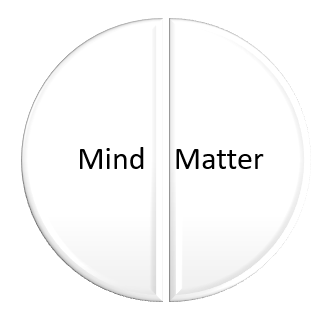The French philosopher René Descartes stipulated that mind and matter are two fundamentally different substances. According to Descartes, matter is a spatially extended substance (Latin: res extrensa) which is fundamentally different from mind (the thinking substance or res cogitans). This view is extremely influential until today and forms the implicit (often-times unconscious) basis of much of scientific theorising. However, recent findings in experimental quantum physics challenge the conceptual validity of the Cartesian split.
According to quantum physicists Henry Stapp (who worked with Heisenberg and Wheeler) the wave function is made out of “mind stuff”. Stapp became well known in the physics community for his work on S-matrix theory, nonlocality, and the place of free will in orthodox von Neumann quantum mechanics. Stapp argues that most contemporary physicists would explain that the wave-function is a vector in a linear Hilbert space. Stapp argues that this explanation points to the fact that the wave-function is not a material thing but a mental concept. It belongs to the realm of mind and not to the domain of matter. In classical Cartesian dualistic terminology: it belongs to the res cogitans and not to the res extensa. German physicist who argues along the same lines, but see the following interview.
A similar monistic perspective on the primacy of consciousness was advocated by Sir Arthur Eddington who argued that Cartesian dualistic metaphysics (which form the unquestioned implicit basis of the large majority of contemporary scientific theories) are not supported by empirical evidence:
“The mind-stuff of the world is, of course, something more general than our individual conscious minds. […] The mind-stuff is not spread in space and time; these are part of the cyclic scheme ultimately derived out of it. […] It is necessary to keep reminding ourselves that all knowledge of our environment from which the world of physics is constructed, has entered in the form of messages transmitted along the nerves to the seat of consciousness. […] Consciousness is not sharply defined, but fades into subconsciousness; and beyond that we must postulate something indefinite but yet continuous with our mental nature. […] It is difficult for the matter-of-fact physicist to accept the view that the substratum of everything is of mental character. But no one can deny that mind is the first and most direct thing in our experience, and all else is remote inference.”
(Eddington, 1929, pp. 276–281)
Interdisciplinary thinkers like Harald Atmanspacher have discussed the crucial epistemological and ontological concepts in depth in various publications.

References
Plain numerical DOI: 10.1080/02604027.1997.9972639
DOI URL
directSciHub download
Show/hide publication abstract
